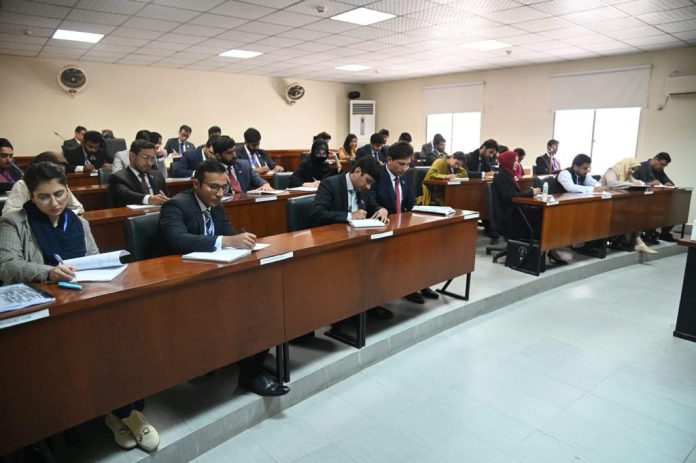In a country where digital access remains uneven and opportunity is often gated by privilege, Amna Altaf is lighting the way forward—one student, one skill, one future at a time. As a senior mentor in a national digital education initiative, she has become a beacon of what can happen when education meets empathy, and when mentorship is offered not as a transaction—but as a form of transformation.
Under the umbrella of “Strengthening Life Skills Based Education in Pakistan,” a flagship project led by the NGO Aiming Change for Tomorrow (ACT), Amna took on one of the most challenging and meaningful tasks in today’s educational landscape: teaching high-demand digital skills to youth who are often left out of formal education altogether. Her learners included out-of-school children and transgender youth—groups that face deep social and economic exclusion. And yet, inside her classroom, those divisions disappeared.
Amna was selected for this role through a highly competitive, merit-based process, reflecting her mastery of digital tools and her commitment to using them for the greater good. But her impact has gone far beyond technical instruction. She helped co-design a structured course that combined real-world tools with human-centered learning. Topics ranged from digital literacy and online collaboration platforms to data skills and basic AI concepts. The content was tailored not just to inform—but to inspire. Every lesson was designed to help students think critically, solve problems creatively, and see technology as a path to agency and self-reliance.
What set her approach apart was her ability to translate complex concepts into accessible learning, regardless of a student’s background. Her classroom was inclusive, dynamic, and anchored in mutual respect. Students who began with little to no digital experience left not only with new technical capabilities—but with confidence, curiosity, and a belief in their own potential.
The ripple effects have been tangible. Through her mentorship, four of her students were recruited into Antity Technology, where they are now working across departments, contributing to real projects and bringing fresh perspectives to the workplace. Their professionalism and readiness surprised even seasoned managers, who now see Amna not only as a mentor but as a trusted talent pipeline—someone who prepares youth not just for jobs, but for careers.
Her mentorship also extended beyond the classroom. Amna offered free, one-on-one guidance to learners, tailored assignments, career advice, and ongoing support long after the program ended. She made herself available not just as a teacher, but as a role model—especially for young women who often lack visible representation in tech education. Her mentorship model has since been studied by program designers and praised for its ability to build not just skill sets, but a sense of belonging and purpose.
But perhaps what’s most remarkable is that all of this was done without financial compensation. Amna volunteered her time and talent with no expectation of return, driven purely by a desire to uplift others. In an era when education is often commodified, her decision to provide free mentorship speaks volumes about her values—and her vision for a more inclusive digital future.
As Pakistan navigates its way toward digital transformation, the need for equitable, grassroots-level education is urgent. And while infrastructure and policy play their part, the real shift begins with people like Amna Altaf—people who choose to lead not with noise, but with purpose. Her story is a reminder that real impact doesn’t always come from the top down. Sometimes, it comes from the ground up—through quiet acts of leadership, shared knowledge, and an unwavering belief in what others can become.


